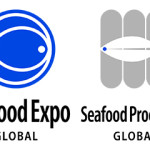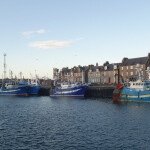Editor’s note: Over the last two weeks of December, SeafoodSource is running a series of articles summing up the year’s news. The series kicked off on Monday with a list of the five most-read commentaries of 2011.
SeafoodSource’s team of staff and contributing editors interviewed a lot of seafood professionals worldwide this year. Here’s a rundown of 2011’s five most-read Q&As:
5) What’s is store for sea urchin culture? A new land-based technology for sea urchin-farming is targeting supply gaps in a market hit hard by overfishing. Gourmet Marine’s UrchinPlatter System was developed at the Ireland’s University of Cork and claims to be the world’s first and only commercial, land-based system for culturing sea urchins, which are valued for their delicate roe. Gerry Mouzakitis, the company’s CEO, talked to SeafoodSource about selling the product to the world’s USD 200 million sea urchin market.
4) Professor Jose Fernandez Polanco of Spain’s University of Cantabria talked to SeafoodSource about the growing influence of frozen pangasius fillets on the European market, which was highlighted at the World Aquaculture Society meeting in March. He also referred to a previous study that found while frozen or previously frozen fillets are now widely available, reservations remain about potential species substitution of defrosted pangasius from Vietnam.
3) In a two-part interview with SeafoodSource, Keith Decker, president and COO of High Liner Foods (USA), talked about overcoming China’s rising labor costs, Vietnam’s growing importance to the seafood-processing world and why consolidation is the way to go. He also discussed the weak U.S. dollar’s impact on the company, the success of its latest product line and pangasius’ potential in the U.S. market.
2) In November, Norway’s Grieg Seafood announced that it has pioneered a method of farming, selecting, processing and packing salmon that results in a superior product. Marketed under the Skuna Bay brand, the “craft raised” line of premium salmon is reared in a pristine, environmentally sound manner in British Columbia waters and processed and handled with extreme care. SeafoodSource talked to Skuna Bay directors Dave Mergle and Stewart Hawthorn about the brand’s potential and whether a new category of premium farmed salmon is emerging.
1) In mid-September, U.S. East Coast restaurant chain Legal Sea Foods’ released an edgy ad campaign, ruffling feathers throughout the environmental community. The ads pit the issue of sustainability against the act of eating seafood. However, Roger Berkowitz, president and CEO of Legal Sea Foods, told SeafoodSource that the campaign’s goal was to spark a dialogue on sustainable seafood among consumers — not antagonize environmentalists.





